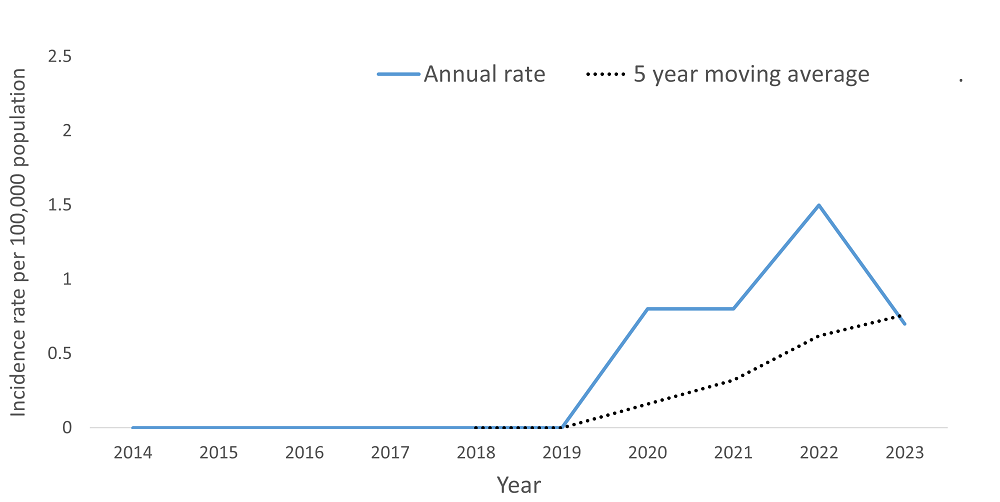Enterobacteriaceae are a family of bacteria, many of which live naturally in our bowels. Carbapenemase-producing enterobacteriaceae (CPE) produce carbapenemase enzymes that can break down many types of antibiotics, making the bacteria very resistant and hard to treat.
Local Information
2024 Statistics
Incidence rate is the number of new cases of disease divided by the number of persons at risk for the disease during a particular time period.
Cases:
3*
*Includes confirmed cases for 2024
Incidence rate per 100,000 in 2024: 2.1
Incidence Rate per 100,000 of Carbapenemase-producing Enterobacteriaceae (CPE) by year

| Data Sources |
|
More Information about CPE |
Reporting |
|
Report to the Health Unit by the next business day by phone at 705-474-1400 or toll free at 1-800-563-2808, ext. 5229 if CPE is suspected or confirmed as per Ontario Regulation 135/18 and amendments under the Health Protection and Promotion Act, R.S.O., c.H.7. |
Should one go to childcare, school, or work if they have CPE? |
|
No exclusion necessary unless too ill to participate in regular activities. Follow the direction of your healthcare provider or your occupational health at your workplace. Note: Exclusion guidelines may differ for healthcare workers. |
Healthcare Provider Information |
|
IPAC Canada: CPE Follow-Up Testing and Drain Management Public Health Ontario: CPE Sample Fact Sheet for Healthcare Staff Public Health Ontario: Carbapenemase Producing Enterobacteriaceae (CPE) Public Health Ontario: Management of a Single New Case of CPE Public Health Ontario: Frequently Asked Questions - CPE
PIDAC: Routine Practices and Additional Precautions in all Healthcare Settings, 3rd edition |
Contact our Communicable Disease Control (CDC) program at 705-474-1400 or toll free at 1-800-563-2808, ext. 5229, or by email to cdc@healthunit.ca for more information.
Last updated: February 2025, by CDC


